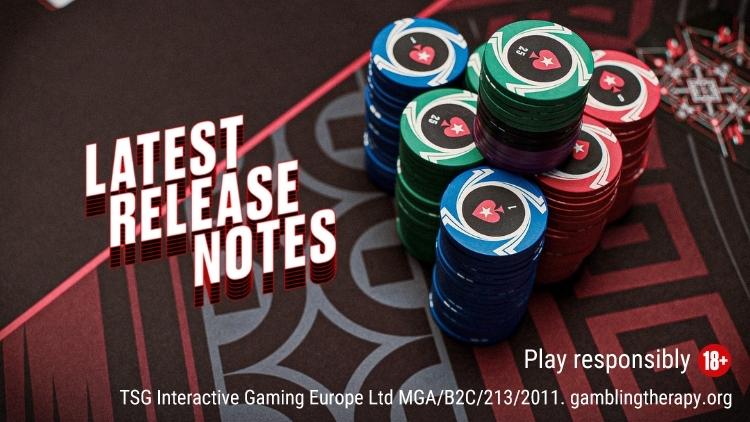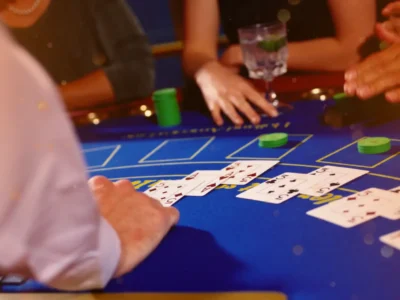From the moment you sit down at the tables, whether playing poker online or live, you will be subject to the vague but crucial laws of poker etiquette.
Though this can be intimidating, even infuriating for new players, poker etiquette is designed to keep the game flowing smoothly and fairly. It’s not about pretense and pointless gestures. It’s mostly about attention and respect.
In a typical poker game, dozens, if not hundreds of players all sit down together to play cards. Poker etiquette is the glue that holds it all together.
Poker etiquette has nothing to do with strategy or how best to play your cards. It has everything to do with how you conduct yourself at the tables. These loose “rules” apply to live poker, and often online poker too. Let’s take a look.
The DOs
DO – Be attentive to the game. The flow of the game depends on everyone at the table paying attention. If even one or two players continually forget or take ages to act, then the gameplay is slowed right down to a halt. Don’t be that person. Pay close attention. Avoid acting out of turn, instead waiting until the action is on you. Then, make your decisions and take action in a timely manner. It helps to know the basic poker rules, whether live or online, to help you to keep up with the game.
DO – Post your blinds and ante. Nearly all poker games have a big blind, most also have a small blind, and some will have an ante. These are obligatory bets that are paid before the hand is dealt. Be aware of the blinds and antes in the game, and when it’s your turn make sure you post them in time to keep the game moving smoothly. You don’t have to worry in online poker; blinds and antes are posted automatically.
DO – Call “Time” if you need it. Although you should always aim to act in a timely manner, you don’t need to rush when you find yourself in a tough hand and need time to think. In a casino, you can actually call “Time” to let the dealer and other players know that you are taking a moment to consider an action. In online poker, you have a “Time Bank” that is reserved for when you need it.

Only show your cards during a showdown. Don’t show them when you fold, or show them to other players during hands
DO – Keep you cards on the table. When playing live poker, be sure to keep your cards on the table. Casinos will have differing policies for this, some stricter than others, but regardless of policy it’s useful to prevent other players from seeing your cards. It also prevents tampering and foul play, stopping players from having the opportunity to swap cards under the table or mark cards.
DO – Make your bets clear. When making a call or raise, be as clear as possible about how much you are betting. The easiest way to do this is to state how much you are raising to in total, or push all the chips you are betting into the middle at once and say “raise”. If you put a single chip in the middle without saying “raise”, then the dealer will generally take this to be a call. Again, this isn’t really an issue online. You simply move the slider or type your bet.
DO – Tip the staff. It’s not obligatory to tip casino staff, but it’s always welcome. You can tip the waiters and waitresses who bring you food and drink, as well as tipping the dealers who keep the game flowing. It’s nice to tip poker dealers when you win a decent pot, although you can also tip them on their skill and service even if you’re not getting monster hands. There’s no requirement to tip for online poker.
The DON’TS
DON’T – Talk trash. You may have occasionally seen professional poker players talking loads of trash at televised events. (We’re not naming any names.) In reality, there’s not many casinos that will tolerate this kind of behavior from players, so unless you’re making an entertainment show then don’t bother. You should always respect other players, as well as the casino staff. Online poker sites generally have the same etiquette. Swearing is censored in the chat, and players who repeatedly break the rules will be banned from the chat.
DON’T – “Slowroll” or “Hollywood”. These two actions are both insults to the other players. They also waste time and interrupt the flow of the game. “Hollywooding” is where you pretend that you have a hand worth calling or raising with, before eventually making the obvious fold that were always going to make. “Slowrolling” is where you make out like you are unsure whether to call, before triumphantly pushing your chips in the middle with a huge hand. Neither are particularly good poker etiquette.
DON’T – Over-celebrate when you win a hand. There’s a certain grace that should come with competition, even more so in the tense arenas of the poker tables. It may be tempting to yell out in celebration when you win a huge pot, but remember to consider the feelings of the other players who just lost their chips. Remember also that poker is a game of part chance – you could easily be on the receiving end and lose your chips next time. It’s better to be nice.

Other players will be feeling the pain of losing big pots
DON’T – Get mad when you lose a hand. Equally, you don’t want to scream out at the top of your lungs when you lose a big hand, even if it’s a real stinker of a bad beat. This would be very disruptive for the play. Even if the hand hurts really bad, it’s good poker etiquette to hold in the curses and carry on. Breathe and take your bad beats on the chin. You should also never belittle other players for what you believe to be bad play.
DON’T – String bet or splash the pot. When you are playing live poker, there’s a certain way to put your chips in the middle when you make a bet. You should avoid:
Splashing the pot – This is where you throw chips recklessly into the middle of the pot. The chips splash together, making it difficult for the dealer to know how much you have bet. The dealer may have to stop the game and count the chips to work it out, disrupting the whole game.
String betting – The is where you put in a few chips… then a few more… then a few more… in a string of bets that makes it difficult for opponents to know when you are going to stop and how much you intend to bet.
DON’T – Discuss the hand whilst it’s still in play. If you have folded but other players are still in the hand, then you shouldn’t discuss the hand that is still in play with others, even if they too are out of the hand. It’s not fair, and it’s a distraction to the people who are still in. Worse still is if you reveal information about what you were holding, as this can change the action and outcome of your hand. Keep it to yourself until after the hand.
Is all poker etiquette set in stone?
There’s more to poker etiquette than just the points mentioned. For example, you shouldn’t angle shoot. This means you shouldn’t use unethically deceptive tactics like distracting players in the hand or announcing that you have a flush when you don’t.
According to poker etiquette, you also shouldn’t hit and run and cash game, meaning you shouldn’t leave the table as soon straight after winning a big pot.

Do you really think you could contain yourself if you just won the final hand in a major event? Sometimes it’s fine to jump around and celebrate. Just shake the other player’s hand first.
But these more vague nuances can be confusing. Poker is a game of deception, so it’s difficult to actually define an angle shoot in real terms. We’ve seen many poker pros goading each other for information, asking their opponents directly whether they are holding the nuts.
Likewise, you are technically free to leave a cash game whenever you want. There’s nothing stopping you walking away if you reach the amount you were aiming for, or you’ve simply had enough.
Some poker etiquette is absolutely set in stone. If you keep string betting or discussing hands that are still in play, then you will get warned or even ejected from a table. Others serve as guidelines for the flow of the game, and not as absolute rules.
It mostly comes down to paying attention to the game and having respect for others. If you keep the basic rules of respect and attention in mind, then the rest of the poker etiquette will follow naturally. Enjoy the game and make it fun for yourself and others.
Back to TopView Other Blogs















